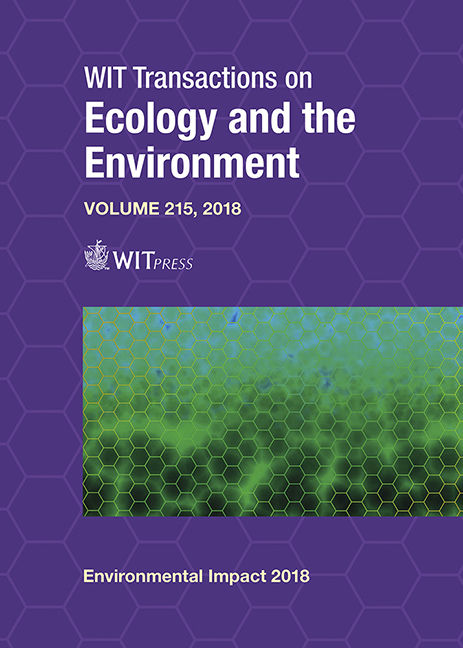DESIGNS, MOTIVATIONS AND RESULTS OF ECO-INNOVATION IN RESORTS: A CASE STUDY OF RIO QUENTE RESORTS, GOIÁS, BRAZIL
Price
Free (open access)
Transaction
Volume
215
Pages
10
Page Range
445 - 454
Published
2018
Paper DOI
10.2495/EID180401
Copyright
WIT Press
Author(s)
VANESSA DE OLIVEIRA MENEZES, VIVIANE APARECIDA SCHOAB
Abstract
The hospitality industry is part of an economic activity with significant environmental impacts, including carbon dioxide and chlorofluorocarbon (CFC) emissions, high energy, water and food consumption and high levels of waste. To minimize the environmental impact, many hospitality properties are implementing and developing eco-innovations that generate ecological, social, economic and market benefits. This paper examines the reality of eco-innovations in Brazilian resorts, using the case of Rio Quente Resorts, located in Rio Quente, Goiás State, Brazil. To this end, the objective was to verify the eco-innovations developed by Rio Quente Resorts, identifying the designs of existing innovations, motivations for investing in them, and the financial and environmental results of these initiatives. Rio Quente Resorts is one of most traditional in the country, and for decades has invested in eco-innovations, earning recognition for this achievement and winning several awards. This qualitative, descriptive and sectional temporal perspective used the analysis of thematic content, with documentary research as a data collection instrument, drawing on Rio Quente’s sustainability reports and a semi-structured interview with the company’s Environmental Manager. The analysis was conducted by triangulating the different data sources to improve the reliability of the results. The study found that Rio Quente Resorts has developed many eco-innovations, mostly end-of-pipe innovations. According to the interviewee, the company’s investments in eco-innovation are motivated by its own initiative. The results are measured financially, although they also included an analysis in terms of environmental impact, measuring the decrease in the use of natural resources.
Keywords
eco-innovation, designs, motivations, results, rio quente resorts





